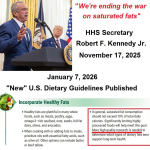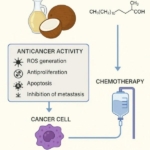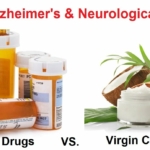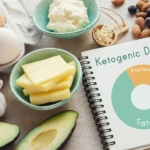By Dr. Mercola
One in four Americans aged 45 and over take cholesterol-lowering statin drugs, despite the fact that the risks are very high, and “high” cholesterol is not always the enemy it’s made out to be.
Statin drugs are effective in that they do lower cholesterol, but falling cholesterol levels do not necessarily equate with good health. Conventional medicine has been telling us that heart disease is due to elevated cholesterol levels and recommends lowering cholesterol levels as much as possible.
So it may come as a shock to learn that having too little cholesterol is actually a verifiable risk to your health.
Meanwhile, total cholesterol will tell you virtually nothing about your disease risk, unless it’s exceptionally elevated (above 330 or so, which would be suggestive of familial hypercholesterolemia, and is, in my view, about the only time a cholesterol-lowering drug would be appropriate).
Cholesterol plays a critical role in your health, including within your cell membranes. Cholesterol is one of the molecules that allows for cellular interactions to take place. For example, cholesterol is the precursor to bile acids, so without sufficient amounts of cholesterol, your digestive system can be adversely affected.
It also plays an essential role in your brain, which contains about 25 percent of the cholesterol in your body. It is critical for synapse formation, i.e. the connections between your neurons, which allow you to think, learn new things, and form memories…
So the notion of using statin drugs as the go-to “preventive medicine” for heart health is not only misguided, it’s dangerous – especially amidst mounting research showing these drugs may actually make your heart health worse.
Statins Inhibit the Synthesis of Vitamin K2
A new finding was published in March 2015, and it is not yet widely known. However, if you’re taking a statin drug, or know someone who is, this information is incredibly important to your health.
Research published in Expert Review of Clinical Pharmacology revealed that, in contrast to the current belief that cholesterol reduction with statins decreases atherosclerosis, the drugs may instead actually stimulate atherosclerosis and heart failure.1
There were several physiological mechanisms discussed in the study that show how statin drugs may make your heart health worse; one being that they inhibit the synthesis of vitamin K2. Vitamin K2 protects your arteries from calcification. Without it, plaque levels worsen.
Vitamin K2’s biological role is to help move calcium into the proper areas in your body, such as your bones and teeth. It also plays a role in removing calcium from areas where it shouldn’t be, such as in your arteries and soft tissues.
According to a 2009 Dutch study, vitamin K2 is associated with reduced vascular calcification even at small dietary intakes.2 Statin drugs inhibit the function of vitamin K2 in your body, which means taking them may put you at risk of vitamin K2 deficiency, a condition known to contribute to a number of chronic diseases, including:
| Osteoporosis | Heart disease | Heart attack and stroke |
| Inappropriate calcification, from heel spurs to kidney stones | Brain disease | Cancer |
Three More Ways Statin Drugs May Interfere with Your Heart Health
The Expert Review of Clinical Pharmacology study also highlighted several other mechanisms by which “statins may be causative in coronary artery calcification and can function as mitochondrial toxins that impair muscle function in the heart and blood vessels.”3 Among them:4
- Mitochondrial damage: Statins are toxic to the energy centers of your cells, called mitochondria. They impair heart muscle mitochondria function, disrupt ATP production (adenosine triphosphate, the energy molecules of your body), and alter intracellular signaling proteins.
- Interfere with coenzyme Q10 (CoQ10): Statins deplete your body of CoQ10, which accounts for many of their devastating results. Although it was proposed to add a black box warning to statins stating this, the US Food and Drug Administration (FDA) decided against it in 2014.
- Interfere with selenium-containing proteins: Selenoproteins, such as glutathione peroxidase, are crucial for preventing oxidative damage in your muscle tissue. As reported by Wellness Resources:5
“Blocking the selenoprotein enzyme glutathione peroxidase is akin to pouring gasoline on the fire of inflammation and free radicals, which damages muscle tissue. In fact, the scientists described this blocking of the selenoproteins reminiscent of selenium deficiency induced heart failure, known as Keshan’s disease first identified in the 1930s.”
Considering the significant risks, the authors concluded:6
“…the epidemic of heart failure and atherosclerosis that plagues the modern world may paradoxically be aggravated by the pervasive use of statin drugs. We propose that current statin treatment guidelines be critically reevaluated.”
Did You Know Statins May Increase Your Risk of Diabetes?
Statins have also been shown to increase your risk of diabetes via a number of different mechanisms. The most important one is that they increase insulin resistance, which can be extremely harmful to your health.
Increased insulin resistance contributes to chronic inflammation in your body, and inflammation is the hallmark of most diseases, including heart disease, which, ironically, is the primary reason for taking a cholesterol-reducing drug in the first place.
It can also promote belly fat, high blood pressure, heart attacks, chronic fatigue, thyroid disruption, and diseases like Parkinson’s, Alzheimer’s, and cancer. Secondly, statins increase your diabetes risk by raising your blood sugar.
When you eat a meal that contains starches and sugar, some of the excess sugar goes to your liver, which then stores it away as cholesterol and triglycerides. Statins work by preventing your liver from making cholesterol. As a result, your liver returns the sugar to your bloodstream, which raises your blood sugar levels.
These drugs also rob your body of certain valuable nutrients, which can also impact your blood sugar levels. Two nutrients in particular, vitamin D and CoQ10, are both needed to maintain ideal blood glucose levels.
Just how strong is the connection between statins and diabetes? A 2011 meta-analysis confirmed that the higher the dosage of statin drugs being taken, the greater the diabetes risk. The “number needed to harm” for intensive-dose statin therapy was 498 for new-onset diabetes — that’s the number of people who need to take the drug in order for one person to develop diabetes.7
In even simpler terms, one out of every 498 people who are on a high-dose statin regimen will develop diabetes. The following scientific reviews also reached the conclusion that statin use is associated with increased incidence of new-onset diabetes:
- A 2010 meta-analysis of 13 statin trials, consisting of 91,140 participants, found that statin therapy was associated with a 9 percent increased risk for incident diabetes.8 Here, the number needed to harm was 255 over four years, meaning for every 255 people on the drug, one developed diabetes as a result of the drug in that period of time.
- In a 2009 study, statin use was associated with a rise of fasting plasma glucose in patients with and without diabetes, independently of other factors such as age and use of aspirin, β-blockers, or angiotensin-converting enzyme inhibitors.9
The study included data from more than 345,400 patients over a period of two years. On average, statins increased fasting plasma glucose in non-diabetic statin users by 7 mg/dL, and in diabetics, statins increased glucose levels by 39 mg/dL.
If You Have Insulin Resistance, Be Very Careful with Statin Drugs
In my opinion, virtually everyone needs to be very cautious in regard to taking statin drugs. However, if you have insulin resistance (have high blood pressure, high cholesterol, high blood pressure, or are overweight) then you need to be especially careful. You see, statin’s interference with vitamin K2 in your body could be incredibly damaging, since vitamin K2 is important for enhancing insulin sensitivity.
Vitamin K can help to regulate your glucose metabolism by converting to a substance called carboxylated osteocalcin in your body, which affects insulin sensitivity.One study found that vitamin K2 supplementation increased insulin sensitivity in healthy young men, and the effect seemed to be related to increased carboxylated osteocalcin levels, rather than to another factor, such as modulation of inflammation. According to the study in Diabetes Care:10
“Although our study could not provide the underlying mechanism, we speculate that [carboxylated osteocalcin] or vitamin K could modulate adipokines or inflammatory pathways other than the IL-6 pathways. Alternatively, [carboxylated osteocalcin] can directly regulate glucose disposal at skeletal muscle or adipose tissues.”
Past research has also shown that vitamin K slowed the development of insulin resistance in elderly men,11 adding to the growing evidence that vitamin K has a potentially beneficial role in insulin metabolism. The fact that statins interfere with your body’s synthesis of this vitamin is likely one reason why they, in turn, may increase your diabetes risk. Insulin resistance is not only a precursor to type 2 diabetes but is also a risk factor in many other chronic diseases.
As an aside, diabetes is just one potential statin drug side effect, and side effects are more common than the media and medical conferences report. A separate report published in the Expert Review of Clinical Pharmacology concluded that statin advocates used a statistical tool called relative risk reduction (RRR) to amplify statins’ trivial beneficial effects.12
The directors of clinical trials, according to the report, have also succeeded in minimizing the significance of numerous adverse effects of statin treatment. The modest benefits of the drugs do not even come close to outweighing the risks, which included increased rates of:
- Cancer
- Cataracts
- Diabetes
- Cognitive impairment
- Musculoskeletal disorders
Vitamin K2 and CoQ10 Are Essential Supplements if You Take Statin Drugs
If you decide to take a statin, a vitamin K2 supplement is highly recommended. MK-7 is the form you’ll want to look for in supplements; it’s extracted from the Japanese fermented soy product called natto. Professor Cees Vermeer, one of the world’s top vitamin K2 researchers, recommends between 45 mcg and 185 mcg daily for adults. You must use caution on the higher doses if you take anticoagulants, but if you are generally healthy and not on these types of medications, I suggest 150 mcg daily.
You’ll also need to make sure you take CoQ10 or Ubiquinol (the reduced form) with it.Most are not told they need to take coenzyme Q10 to buffer against some of the most devastating side effects of statin drugs. As previously explained by Dr. Stephen Sinatra, a board-certified cardiologist, statins block not just cholesterol production pathways, but several other biochemical pathways as well, including CoQ10 and squalene—the latter of which Dr. Sinatra believes is essential in preventing breast cancer.
Squalene reduction caused by the statin can also raise your risk of immune system dysfunction. The depletion of CoQ10 caused by the drug is why statins can increase your risk of acute heart failure as well. So if you’re taking a statin drug, you MUST take Coenzyme Q10 as a supplement. You cannot get enough of it through your diet.
Dr. Sinatra recommends taking at least 100 milligrams (mg), but preferably 200 mg of high-quality CoQ10 or Ubiquinol daily. One study in the European Journal of Pharmacology showed that ubiquinol effectively rescued cells from the damage caused by the statin drug simvastatin, thereby protecting muscle cells from myopathies.13
Another study evaluated the benefits of CoQ10 and selenium supplementation for patients with statin-associated myopathy.14Compared to those given a placebo, the treatment group experienced significantly less pain, decreased muscle weakness and cramps, and less fatigue.
Check These Ratios to See if You’re at Risk of Heart Disease
There’s a very good chance you may not need a statin drug at all. If you’ve been told you need to take a statin, please read these 7 factors to consider if you’re told your cholesterol is too high. And rather than relying on total cholesterol as your guide, two ratios that are far better indicators of heart disease risk are:
- Your HDL/total cholesterol ratio: HDL percentage is a very potent heart disease risk factor. Just divide your HDL level by your total cholesterol. This percentage should ideally be above 24 percent. Below 10 percent, it’s a significant indicator of risk for heart disease
- Your triglyceride/HDL ratios: This ratio should ideally be below 2
Additional risk factors for heart disease include:
- Your fasting insulin level: Any meal or snack high in carbohydrates like fructose and refined grains generates a rapid rise in blood glucose and then insulin to compensate for the rise in blood sugar. The insulin released from eating too many carbs promotes fat and makes it more difficult for your body to shed excess weight, and excess fat, particularly around your belly, is one of the major contributors to heart disease
- Your fasting blood sugar level: Studies have shown that people with a fasting blood sugar level of 100-125 mg/dl had a nearly 300 percent increase higher risk of having coronary heart disease than people with a level below 79 mg/dl
- Your iron level: Iron can be a very potent oxidative stress. If you have excess iron levels, you can damage your blood vessels and increase your risk of heart disease. Ideally, you should monitor your ferritin levels and make sure they are not much above 80 ng/ml. The simplest way to lower them, if they are elevated, is to donate your blood. If that is not possible, you can have a therapeutic phlebotomy and that will effectively eliminate the excess iron from your body
Read the full article here.
Sources and References
- 1 3 6 Expert Rev Clin Pharmacol. 2015 Mar;8(2):189-99.
- 2 Nutr Metab Cardiovasc Dis September 2009
- 4 5 Wellness Resources February 16, 2015
- 7 JAMA. 2011 Jun 22;305(24):2556-64
- 8 The Lancet February 2010; volume 375, No. 9716, p735-742
- 9 Journal of Investigative Medicine March 2009, Vol. 57 – Issue 3: pp 495-499
- 10 Diabetes Care September 2011, Vol. 34, no 9 e147
- 11 Diabetes Care. 2008 Nov;31(11):2092-6.
- 12 Expert Rev Clin Pharmacol. 2015 Mar;8(2):201-10.
- 13 European Journal of Pharmacology April 24, 2013
- 14 Canadian Journal of Physiology and Pharmacology 02/2013; 91(2):165-70




 HHS Secretary Kennedy Breaks His Promise: "War on Saturated Fat" Kept in Tact with New U.S. Dietary Guidelines
HHS Secretary Kennedy Breaks His Promise: "War on Saturated Fat" Kept in Tact with New U.S. Dietary Guidelines Research Continues to Show Virgin Coconut Oil's Effectiveness in Treating Cancer
Research Continues to Show Virgin Coconut Oil's Effectiveness in Treating Cancer Coconut Oil Continues to Benefit Alzheimer's Patients over Drugs as Studies Continue for Neurological Benefits
Coconut Oil Continues to Benefit Alzheimer's Patients over Drugs as Studies Continue for Neurological Benefits How the Simple High-Fat Low-Carb Ketogenic Diet Continues to Change People's Lives
How the Simple High-Fat Low-Carb Ketogenic Diet Continues to Change People's Lives New Studies Continue to Show that Coconut Oil is the Best Oil for Treating Skin Conditions and Maintaining Healthy Skin and Teeth
New Studies Continue to Show that Coconut Oil is the Best Oil for Treating Skin Conditions and Maintaining Healthy Skin and Teeth
Leave a Reply